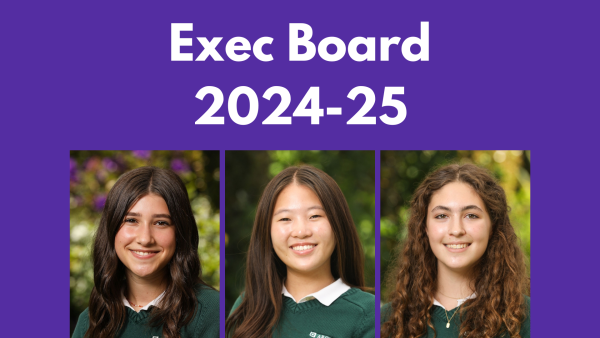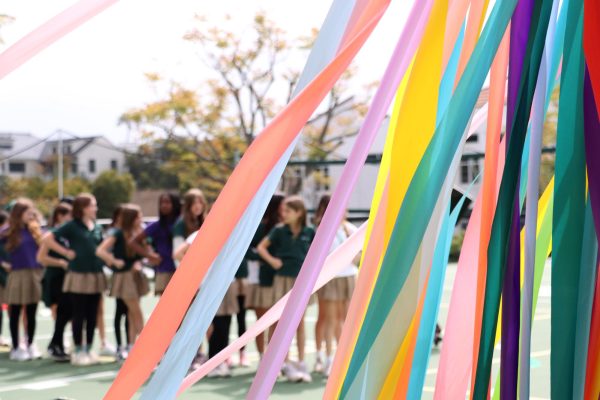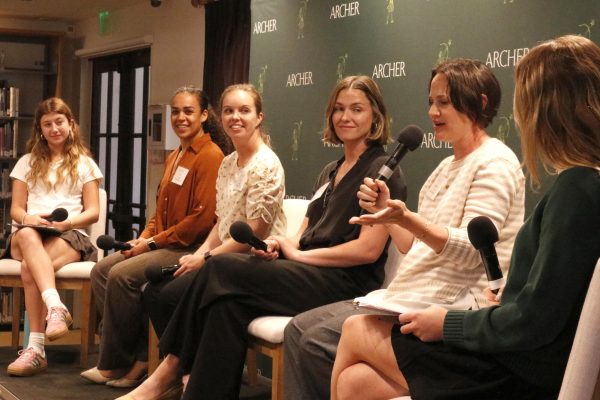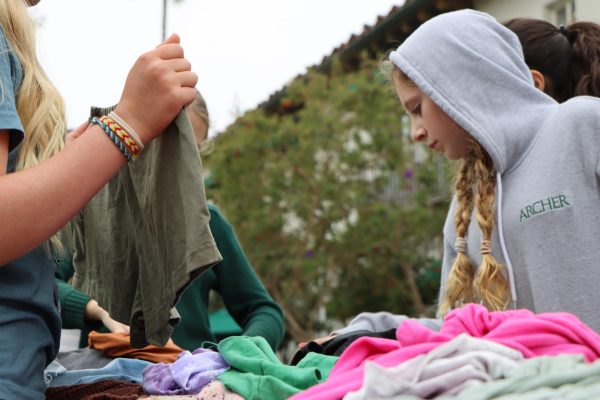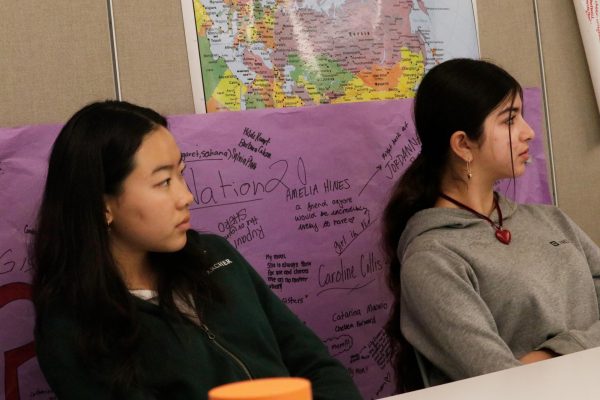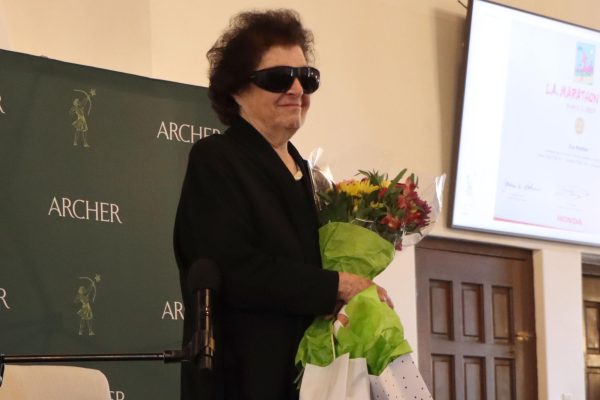Empathy around the world: Ukrainian students engage in virtual Q&A, inspire awareness surrounding ongoing crisis
Photo credit: Siena Ferraro
Students and faculty listen to Ukrainian students Kateryna Kischynska and Sofia Turanska speak about their altered lifestyles due to the war with Russia. The Q&A session took place Tuesday, May 9, in history teacher and Director of the Artemis Center Beth Gold’s classroom.
May 12, 2023
Russia invaded Ukraine in February 2022, and the largest land war in Europe since World War II was unleashed. As a result, Ukraine has endured mass destruction and devastation. In an attempt to foster connectivity between Ukrainian and American students, freshman Melinda Wang invited Archer upper schoolers and faculty members to attend a virtual Q&A session Tuesday, May 9, with university students, who Zoomed in from Ukraine, Kateryna Kischynska and Sofia Turanska.
The session took place during meetings and mentorship time in history teacher Beth Gold’s classroom, and 24 students and faculty members attended.
During the Q&A, Kischynska and Turanska described ways their daily lives have shifted since the outbreak of the war — from personal relationships to working to attending university classes. Kischynska said the stress of the crisis itself and even more so the normalization of feeling constant stress, anger and discomfort, have been challenging.
“I regret to say that we’re getting used to a lot of stress,” Kischynska said. “Because [when] you are under pressure and stress and [have] a lot of adrenaline and fear, [you feel] anger all of the time.”
Wang coordinated the event and took on a large portion of the initial planning and execution of the Q&A. Wang, alongside her friend, Santa Monica High School freshman Shayl Khatod, founded Reflect Empathy, a nonprofit organization currently working to illuminate the ongoing crisis in Ukraine. They compiled an anthology of artworks, poems and prose, which they intend to publish. According to their website, they will put the subsequent proceeds from the collection’s sales towards “granting our Ukrainian authors and artists scholarships for higher education.”
Wang said Reflect Empathy hosted the virtual Q&A to create a channel of communication between U.S. and Ukrainian students in order to convey a portion of the struggles Ukrainian students — who are close in age to Archer students — experience daily.
“The goal of [the] Zoom was to have Archer students understand more about the Ukraine war and how it has impacted daily life,” Wang said. “Then, they might ask us questions about living in America and what we might do to help.”
When planning the virtual event, Wang collaborated with Gold, who is also the director of the Artemis Center, to fine-tune the logistics. Gold was interested in Wang’s organization and asked her to present about it during one of the Artemis Center’s meetings. After presenting at the meeting, Wang and Gold continued to collaborate and eventually came up with the idea of the Zoom.
“I see my role as Director of the Artemis Center as promoting and amplifying student voice, student initiative and student activities to inspire, educate and activate others,” Gold wrote in an email. “I wanted to help Melinda spread her message of building empathy and spotlight the work and effort she has put into building her [organization].”
Freshman Max Speck attended the Q&A and said they found it to be an interesting and valuable experience. Speck said they appreciated the opportunity to give U.S. students an enriched understanding of the magnitude of the war and how there is more to the crisis than simply being under attack.
“It’s a whole lot harder than just, ‘We’re under attack,'” Speck said. “It’s a lot of ‘my family isn’t here’ or ‘I’m stuck with my family, and I can’t leave them.'”
Wang said she hoped attendees exited the meeting not only with broadened worldviews and understandings of the Ukraine conflict but also with broadened hearts and extended empathy towards those suffering through the crisis.
“I just hope that they’ll be able to empathize more with these disastrous things that are happening around the world and become incentivized to actually do something,” Wang said. “It could be something small like donating to a fundraiser or submitting to Reflect Empathy, just something small that could possibly make a change.”



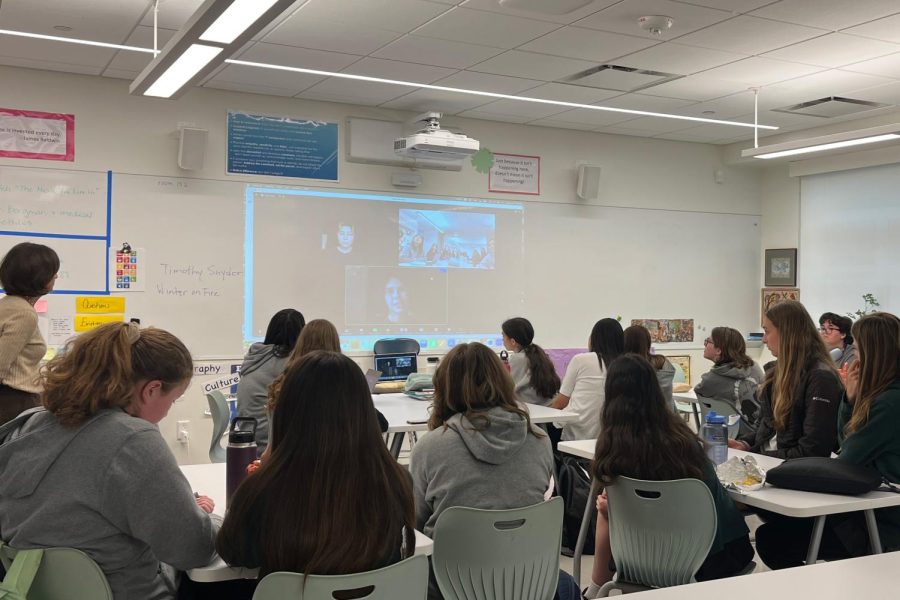
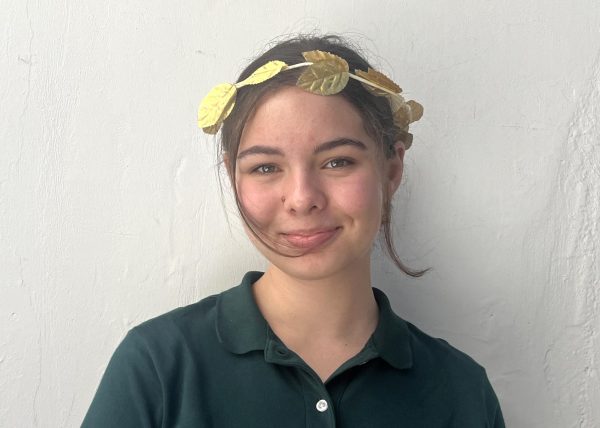





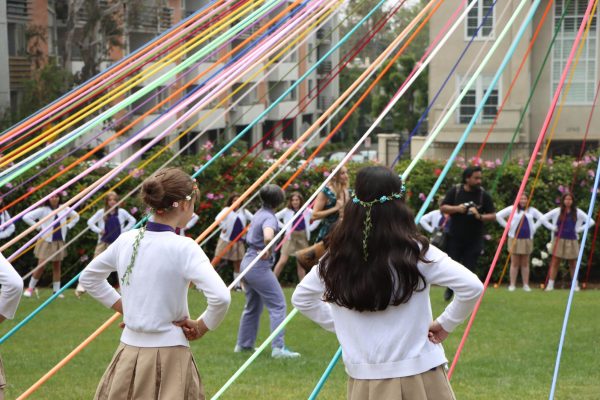
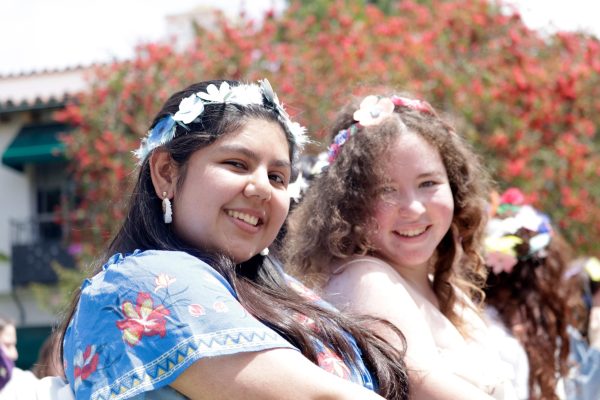
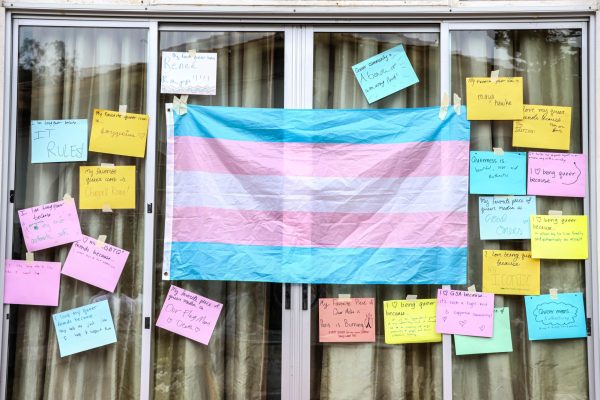
![Seniors laugh as they shoot water across the courtyard, during the annual fountain jump. I [the fountain jump] is really the culmination of your Archer experience, senior Ella Gray said. Especially because youre always around the fountain, at some point, and now you get to be in it.](https://archeroracle.org/wp-content/uploads/2024/05/MG_0817-1-600x400.jpg)
